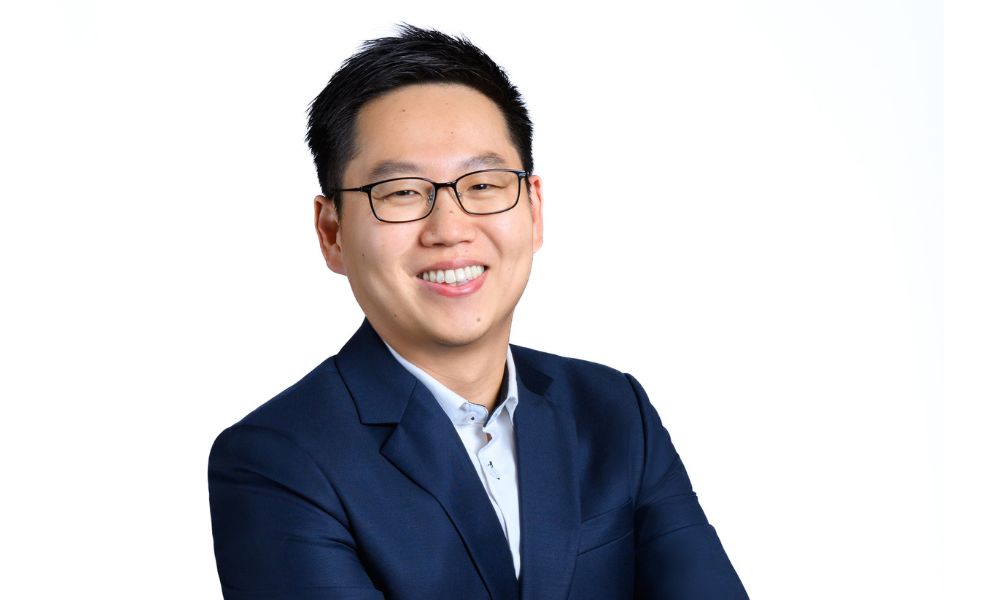Progress, but not at the cost of sanity

Progress, but not at the cost of sanity | Insurance Business Asia
Life & Health
Progress, but not at the cost of sanity
“If you look at it, the implications compared to major critical illnesses are far greater”
Life & Health
By
Kenneth Araullo
Oct. 10 marks World Mental Health Day, a day, in which people around the world collectively raise awareness for global mental wellbeing, as well as the advocacy against the social stigma that it still bears. It is a cause which is incredibly timely, especially with soaring geopolitical tensions, inflation that is being felt across all regions, and just a general state of unease and unwellness.
As a location central to the financial world, Singapore stands above most of the rest for its economic prowess. However, this success also comes at a cost, one that is by no means cheap, as discussed by AIA Singapore chief corporate solutions officer Kenneth Tan (pictured above).
“If you look at the thesis studying global work-life balance index, Singapore makes the top five of the list year on year. In essence, Singapore is one of the most overworked cities. I can certainly attest to that,” Tan said in conversation with Insurance Business Asia.
“Finding that we are consistently one of the most overworked cities in the world speaks a lot about our state of mental health,” Tan said. “In our own survey that we conducted with participants from ages 18 to 55, we found that three in five people are very concerned about mental health issues, and particularly depression. Some other interesting stats reveal that one in five of the 35 and above were suffering from depression.”
Also plaguing citizens is anxiety, mostly stemming from financial concerns, Tan said. This is especially prevalent in the younger generation, a demographic that is also expected to carry a burden represented by a rapidly ageing population. However, Tan was also thankful that these issues have begun to be more visible, especially in the corporate world which Singapore is very dependent on.
“Firms are exploring ways to cover mental health, to make mental wellbeing the norm,” Tan said. “Prior to 2020, there was only less than 1% of our clients who [were] covering mental health as part of their employee benefits. Today, we see close to 10% of companies covering mental health. While that may seem like a small number, that 10% speaks a lot compared to what it was before.”
While it is certainly an improvement, Tan remarked that there are still a lot more opportunities to get involved, especially for organisations looking to empower their employees. What is especially inspiring, he added, is that the government itself has begun to look at this issue more closely.
“If you look at the government today, they want to form a task force just to focus on mental health and mental health issues. We are heartened to see that it’s not only organisations who are taking steps to collaborate and work together with everyone to focus on mental health,” he said.
Thinking well
AIA Singapore is no stranger to this revitalised focus on mental wellbeing. As one of the country’s “systemically important” insurance companies, the firm launched its Think Well program with telemedicine company WhiteCoat earlier this year, providing corporates an initiative to help their employees be more mentally sound in the face of heightened global issues.
“Through this program, we cover almost about 500,000 insured members across our corporate clients,” Tan said. “This is provided complimentary to them with very low barriers to entry using their mobile device. Just take out your phone, fill up your questionnaire, let it know how you’re feeling, and then it will bring you to a whole range of articles on mental wellness, articles on mental resilience articles.”
The journey is tailored to cater to a stress-filled employees’ needs, and in these needs, AIA recognised that there are some barriers which AI cannot compete with actual humans. Instead of using generative chatbots, the company uses certified mental health professionals to chat with members for a personalised and productive conversation.
“The chat is also synchronous, meaning the time is dedicated to the member,” Tan said. “It is not a case where the mental professional is multitasking, talking to different people during any given time. We enable the members to book dedicated time slots to speak to the mental health professionals, meaning that time is dedicated to the member and all the attention is on the member.”
“We have almost about 100 to 150 corporates in Singapore using this service. We have also since expanded the service because mental health, in our opinion, is a continuum. We really want to focus on not only the journey or how you’re feeling today, but how you’re feeling every day of the week. You may have challenges today – your family, your work, your colleagues, your friends – and how you’re feeling every day is very important,” he said.
The path to sound mental health is a continuous one, Tan said, and it is this principle that helped shape AIA’s journal-based approach for members under the Think Well program. As members’ moods are tracked, they are offered a dynamic range of wellness articles meant to help them at different stages of their mental wellbeing journey.
“I think our focus at AIA is really to fulfil our brand promise to help employees and our clients live healthier, longer, better, lives, and healthier doesn’t just mean physical health,” Tan said. “It extends beyond physical health. I think that focusing on the mental component of health is also very important. There are two pillars to stand on: your mental health and your physical health. We believe that both together can help us help our clients through their lives.”
Since its launch, Think Well has seen between 6,000 to 7,000 consultations across its corporate clients. Tan also described some trends that revealed surprising and useful insights for the company, the most important of which is that seven in 10 users are aged between 25 to 34, highlighting the younger generation’s openness towards mental health.
“The other thing that caught us a little bit by surprise is when we first started out, we had the mental wellness sessions for about 15 minutes. What we realised as we started to open up the services more, every member actually chatted close to double that time – about 30 minutes – which means there is active engagement and participation and they actually wanted to speak more to the mental health professional when they were on the chat. We have since adjusted that to make the slots longer to adjust to this you know this trend. It is encouraging to see that people want to speak and use the service for longer than we expected,” Tan said.
Erasing the stigma around mental health
While many have begun to actively raise awareness with mental health and issues associated with wellbeing, it is still a discussion that bears a certain stigma around it. Tan said that despite strides made for championing mental wellbeing and recognising the issues that certain people have, a recent regional insurance survey revealed that there is still two-thirds of the population who are concerned about sharing the state of their mental health.
“If you look at it, the implications compared to major illnesses are far greater,” Tan said. “People worry about how others will react, how their friends would feel or how their employees would feel about their state of mental health. It may impact confidence in a person’s ability to work, so I think there is a definite stigma in sharing your mental health condition.”
With this in mind, Tan said that the onus falls on businesses, whose successes are largely owed to the hard work of its human workforce. Generating awareness, being open and understanding towards mental health issues, supporting them through various initiatives, and – as Tan simply put – “being there for them” all go a long way.
“There are nine out of 10 companies that don’t cover their employees’ mental health,” Tan said. “We continue to try to talk to them and say how important this is and how this is becoming the norm. While companies are progressively thinking about expanding their scope of coverage, allowing access, or really also having talks and seminars to talk to employees, that’s no longer enough. In fact, that kind of support is just the base level of what we offer.”
The mind is a muscle, and this muscle can also be trained, Tan said. For this, he urged companies and firms to be places where employees can train these muscles effectively to generate a more stable and resilient mental health across the workforce.
“Being open about talking, having that community to speak about this also helps,” he said. “In one of our recent studies, a lot of the respondents really felt that the financial concerns were also one of the main factors in the poorer mental state. The question and challenge for people in these trying times is, how do we manage that as we retire? How do we protect our health? That’s where AIA comes into play.”
What are your thoughts on this story? Please feel free to share your comments below.
Related Stories
Keep up with the latest news and events
Join our mailing list, it’s free!







